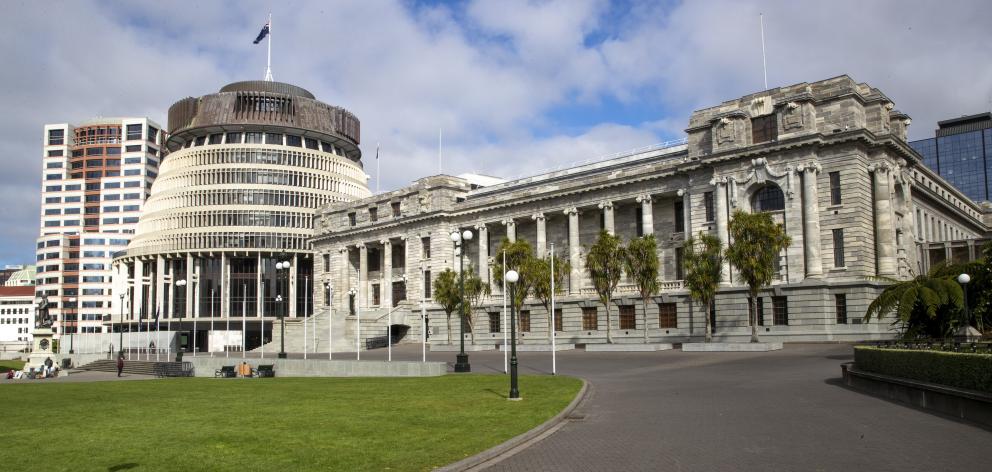
This week Parliament’s environment select committee has split in two as it starts to consider personal submissions from some of the thousands who wanted a say on the Fast-track Approvals Bill.
And thousands there were — 27,000 in fact. It is not quite a record — more than 100,000 people submitted on the Act which banned conversion practices — but many of the submissions on both Bills were copy and paste boilerplate submissions.

But still, that means there are a lot of people with a lot to say, for and against, on this Bill. Spoiler alert: it is mostly against.
Hence there was some angst when the committee — which Dunedin Labour MP Rachel Brooking is a member of — decided last week it would only hear from about 550 of the 2900 people who wanted to address the MPs in person.
Its press release reassuringly stated that those 550 people equated to about 40% of hopeful in-person submitters, implying that that stacked up reasonably well compared with the 837 lucky folk from among the 109,000 who submitted on the Conservation Practices reform who actually got to have a face-to-face with the committee.
On a simple mathematical basis it is easy to have some sympathy for the select committee. If all 2900 hoping for an in-person submission were granted one, and each were given five minutes apiece, it would take 241 hours to get through them all. Even forming sub-committees and working overtime, it would still take a couple of months to get from A to Z — assuming all other business was shelved.
But on the other hand, much of the ire with the proposed legislation arises from the speed of the process and the alleged lack of proper scrutiny which would-be miners, road-builders and manufacturing plant constructors would undergo before their pet projects got sign-off, or otherwise, from the relevant ministers.
And here is another spoiler alert: very few submitters are expecting many mines, highways or factories are going to be turned down, if any, as the government listens to the siren call to just get some things built, to paraphrase the minister in charge, Chris Bishop.
Holding a lottery to decide the lucky speakers, again, sounds fair — unless you are one of the unlucky ones and not without reason feel that the democratic process should be paying attention to your valuable voice.
But a few lucky southerners did get their moment in the sun this week, starting with seasoned Dunedin activist Bruce Mahalski, whose distinctive environmental artwork regularly runs in The Weekend Mix.
"These giant climate events are only going to start racing up until we start addressing them and stop pretending that this is business as usual, which this Bill very much does," he said.
"We are in big trouble. I would say that this government’s policies in every regard are a huge step backwards, withdrawing protection from the weak and poor, and they are a disaster for the environment, and this is the worst Bill yet."
Tell us what you really think Bruce.
Mr Mahalski — who was speaking on behalf of the Dunedin Museum of Natural Mystery committee — went on to claim the Bill was anti-Treaty, anti-democratic, anti-scrutiny and anti-science, and went against the government’s promise to make evidence-based policy: "We utterly oppose this Bill on every level."
Ms Brooking asked a leading question as to whether requiring emissions to be considered would help, but Mr Mahalski was quick to dismiss that as greenwashing.
"We are in a climate emergency, so far as I know the present government hasn’t rescinded that."
Up soon after was another familiar Dunedin face, former mayor Aaron Hawkins, who has had a busy week back in the hurley burley of politics.
After an opening salvo noting his dismay that the committee had not allocated the public the time it had demanded to be heard on the Bill, Mr Hawkins noted that the Bill was effectively resource management reform, and that so far the process had pitched those who thought the old law was too weak against those who thought it was too obstructive.
"But at least under the resource management system that we currently have decision makers have to justify and articulate the trade-offs that are being made within the planning system and what they are prepared to give up in order to support wider wellbeing.
"Concentrating those decisions into such a small group of ministers and not having that framework whereby decisions have to be justified and articulated, I think we are going to end up with very poor environmental outcomes ... it is ironic that this is being considered by the environment select committee given how little weight is given to environmental outcomes in the legislation."
Although Mr Hawkins’ five minutes of fame (things have sped up since Andy Warhol made his famous 15 minutes quip) was over, committee chairman National New Plymouth MP David MacLeod allowed a bit of overtime for Ms Brooking to ask Mr Hawkins about his comments about transparency.
His reply that he had written his submission on the Bill before the government had decided to release the list of firms approached about the fast-track consent proposals and his comments had been made in that context spoke volumes about the cracking pace that the government would like to set — if only 550 pesky members of the public would let it.











